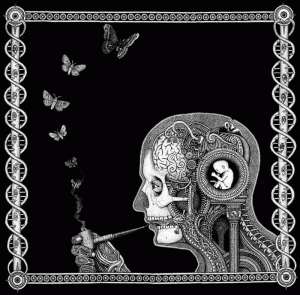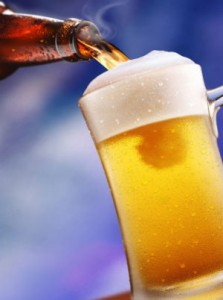Why Does Cannabis Potentiate Psychedelics?
 It’s an effect that many psychedelic users are familiar with - at the tail end of trip, with the experience waning, smoking cannabis will tend to increase the psychedelic effects and “bring the trip back”. Similar effects occur on the comedown of drugs like MDMA. Why does this happen?
It’s an effect that many psychedelic users are familiar with - at the tail end of trip, with the experience waning, smoking cannabis will tend to increase the psychedelic effects and “bring the trip back”. Similar effects occur on the comedown of drugs like MDMA. Why does this happen?
It appears that this may be a result of the interrelationship between the brain’s natural cannabinoid receptors and the GABA system.
Nerve cells are designed to fire repetitively, and are subject to a barrage of stimuli. The brain prevents itself from spiraling out of control into hyperexcitable states by inhibition, a way of “turning down the volume” in the brain. The major workhorse for this is gamma animobutyric acid, or GABA. In a strange parallel, the brain synthesizes GABA in one step from glutamate, the brain’s major excitatory neurotransmitter.
We know that cannabis gets us “high”, that it produces a general excitatory effect across many areas of the brain. First this was thought to be a result of cannabinoid (specifically CB1) receptors being expressed on glutamate receptors. This was not the case. Instead, they appear to be almost exclusively expressed on GABAergic neurons where they have an inhibitory effect.
So it seems that cannabis inhibits the inhibitor, and ends up having a general excitatory effect. In the same manner that a benzodiazepine or alcohol may dull a trip via direct GABA agonism, cannabis may increase the effects of a waning psychedelic due to GABA inhibition.
Cannabinoids inhibit hippocampal GABAergic transmission and network oscillations. N. Hajos et. al. European Journal of Neuroscience, Vol. 12, pp. 3239-3249, 2000.



